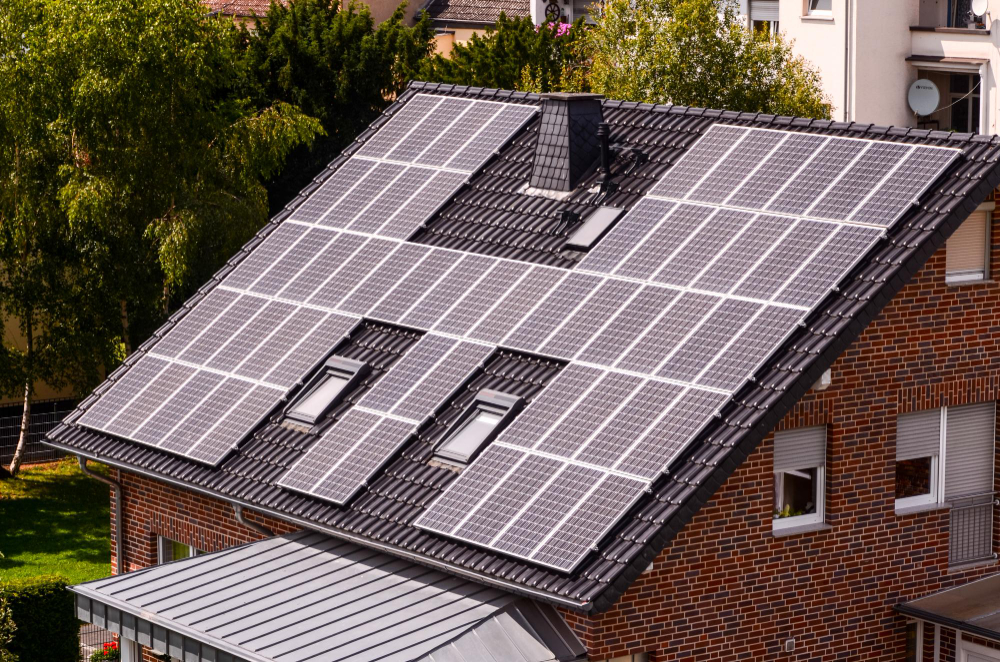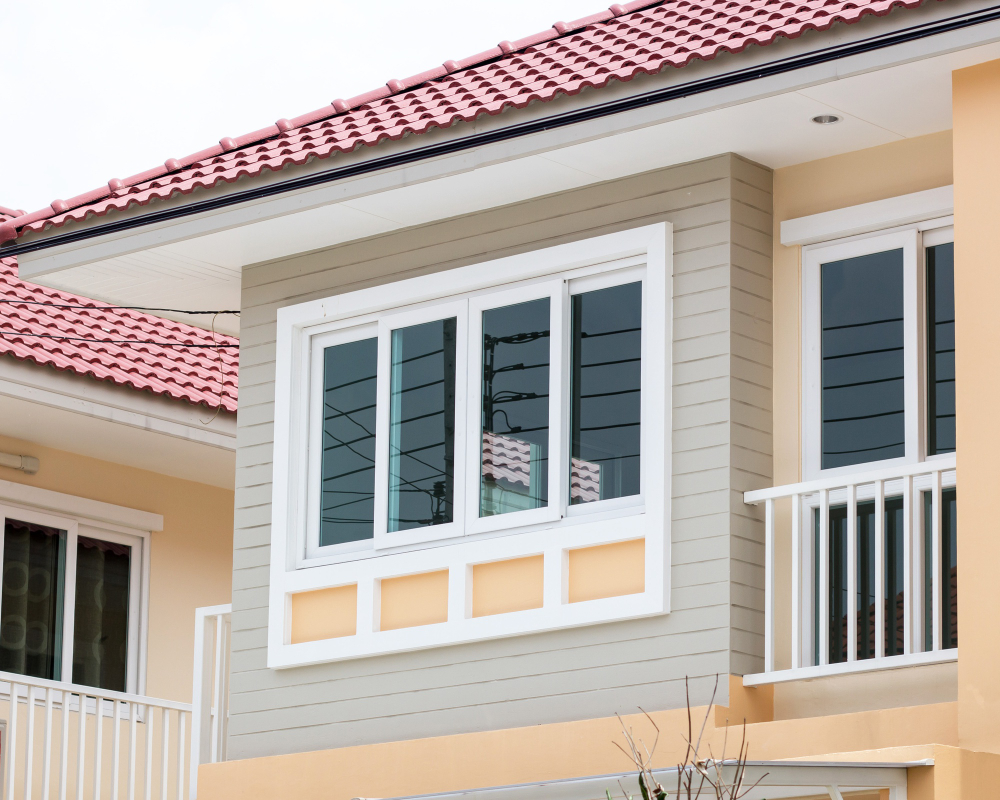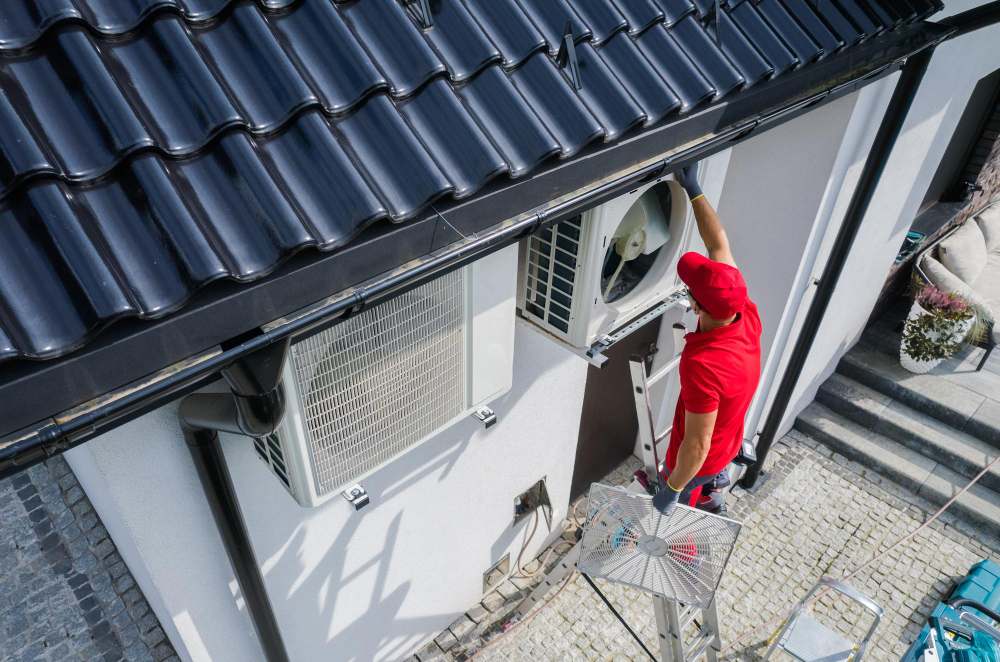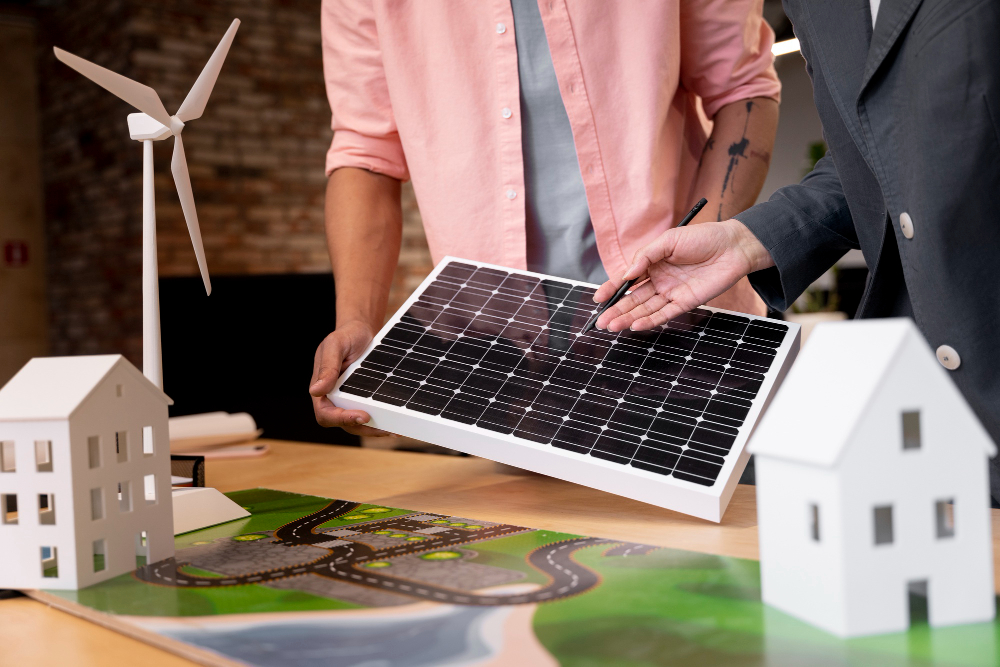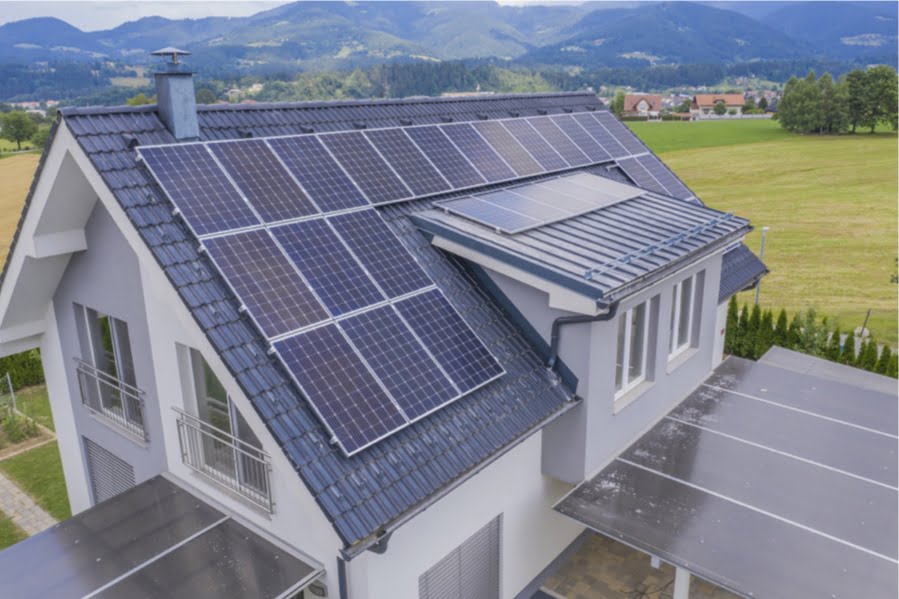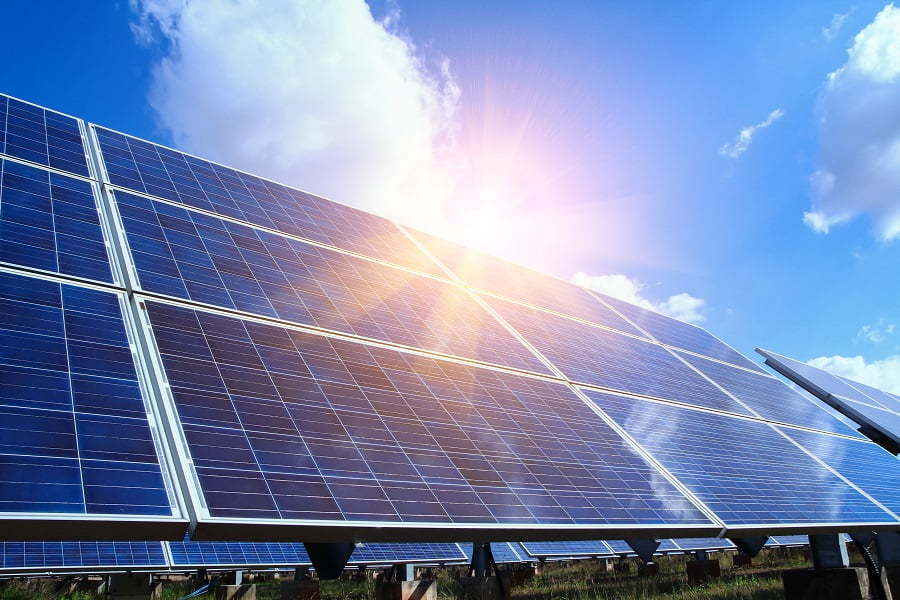Last updated on
Consider your needs and budget to choose the right solar power system for your RV. Calculate your power usage and choose the appropriate components.
If you’re an RV lover, you understand the joy of living on the go, exploring new destinations, and experiencing the beauty of nature.
But you also know how frustrating it can be to rely on shore power, generators, or batteries for your electricity needs.
Shore power can be expensive, noisy, or unavailable in remote areas. Generators can be loud and smelly and require fuel and maintenance. Batteries can run out quickly, especially if you have a lot of appliances or devices.
That’s why many RVers turn to solar power as a clean, quiet, and renewable way to power their rigs.
How a Solar Generator Works and Why You Need One for Your RV?
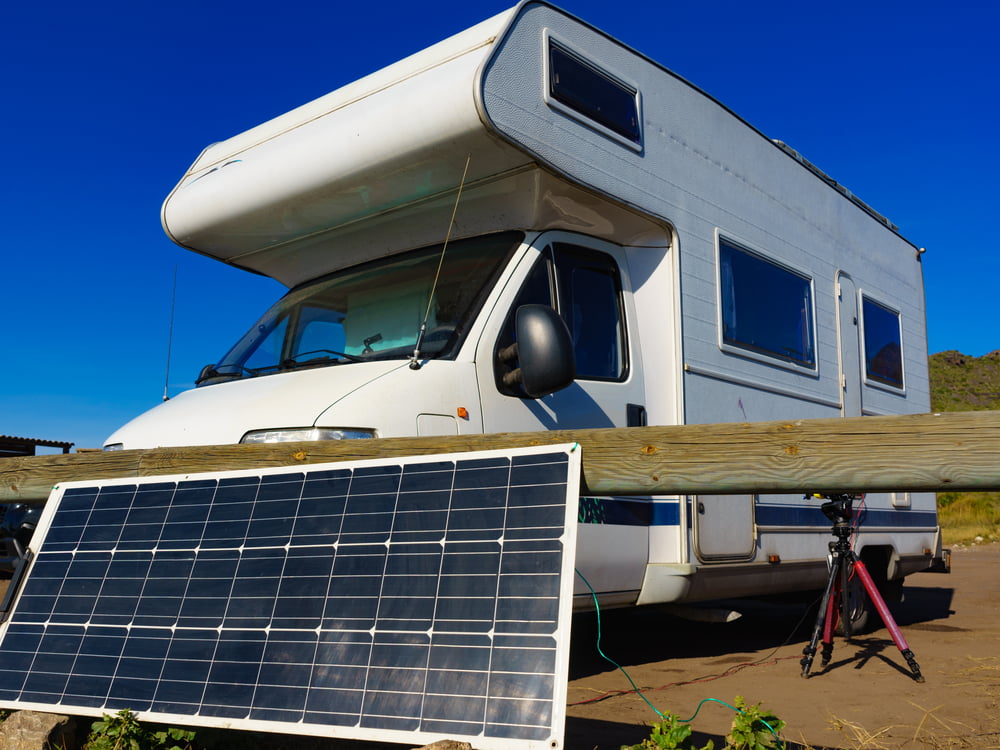
A solar generator is a system that harnesses the sun’s energy and converts it into electricity for your RV. It has four essential components:
Solar Panels
Solar panels are the heart of the solar generator. They are made of solar cells. These cells capture photons from sunlight and turn them into electric currents.
The more sunlight they receive, the more electricity they produce.
Batteries
This electricity is then stored in batteries, which are the backbone of the solar generator. They provide power when there is no sunlight or when the demand exceeds the supply.
Charger Controller
The batteries should be charged just right, not too much or too little. That’s where the charge controller comes in.
It regulates the voltage and current of the solar panels and the batteries and changes them as needed.
The electricity from the batteries is ready to use for your RV, but there is one problem: it is in direct current (DC) form, while most of your appliances and devices need alternating current (AC) form.
Inverter
That’s why you need an inverter. It changes DC electricity into AC electricity that you can use for your lights, fridge, TV, and other gadgets. It also allows you to connect to shore power or a generator when necessary.
With a solar generator, you can power your RV with sunlight and enjoy the freedom and comfort of traveling anywhere.
You can cut down on fuel and maintenance expenses, lower your carbon emissions, and feel secure knowing that you have a backup power source in case of emergencies.
Just buy the best solar generator you need for your RV that suits your needs and budget, and you’re good to go!
What to Consider When Selecting Solar Panels for Your RV
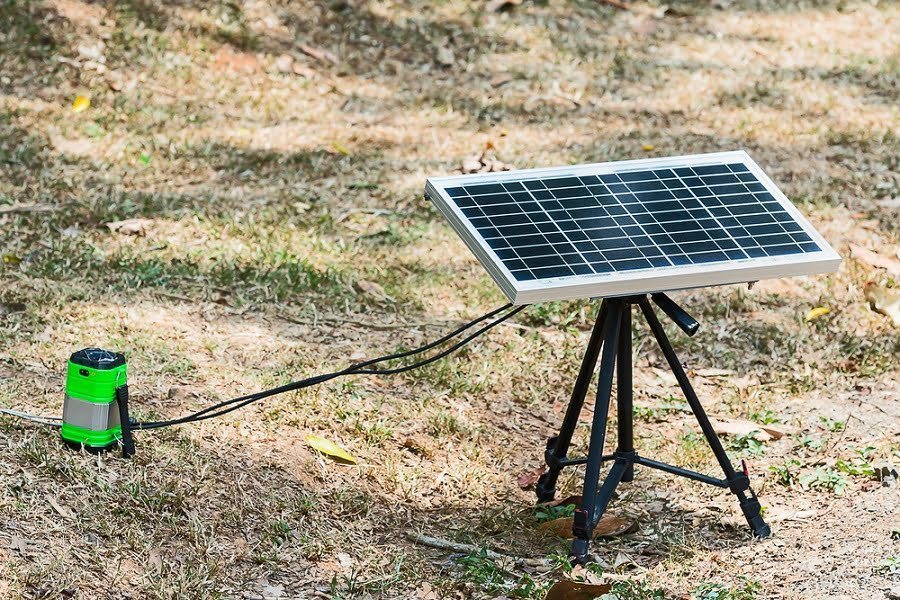
The most important part of a solar power system is the solar panels. They control how much electricity you can produce from sunlight.
You can choose from three types of solar panels for your RV:
Monocrystalline Solar Panels
These are made of single-crystal silicon cells that have a uniform dark color and high efficiency. They are the most common and easy-to-find type of solar panels for RVs. They also have the best performance and durability.
Polycrystalline Solar Panels
These are made from multiple-crystal silicon cells that have a blue or speckled color and appearance. They are the next most popular type of solar panels for RVs. They have a good balance between performance and cost.
Amorphous Solar Panels
These are made of thin-film silicon cells that have a black or brown color and low efficiency. They are the cheapest option and are very thin and lightweight, which makes them the most flexible choice for installation.
The table below summarizes the main features and differences of each type of solar panel:
| Type | Efficiency | Lifespan | Temperature Tolerance | Cost | Flexibility | Shade Tolerance |
| Monocrystalline | Up to 22% | Up to 25 years or more | High | High | Low | Low |
| Polycrystalline | Up to 18% | Up to 20 years or less | Medium | Medium | Medium | Medium |
| Amorphous | Up to 10% | Up to 10 years or less | Low | Low | High | High |
How to Calculate Your Power Needs and Choose the Right Size of Solar System
You have to do some simple maths to determine how much solar power your RV needs.
Don’t worry; it’s not too complicated. Here are the steps:
Step 1: Estimate Your Energy Consumption
Start by listing everything you use in your RV that needs power, and check how many watts they use every hour. You can find this information on the labels, manuals, or online.
For example, let’s say you have a normal RV fridge that uses 150 watts per hour, a laptop that uses 50 watts per hour, and an LED light that uses 10 watts per hour.
Then, multiply the wattage by the number of hours you use each appliance or device per day.
If you run your fridge for 24 hours, your laptop for 4 hours, and your LED light for 6 hours per day, your total power usage is:
- Fridge: 150 watts x 24 hours = 3600 watt-hours
- Laptop: 50 watts x 4 hours = 200 watt-hours
- LED light: 10 watts x 6 hours = 60 watt-hours
Add up all the watt-hours for all your appliances and devices to get your daily energy consumption.
Step 2: Estimate Your Battery Capacity
Check the labels or manuals of your batteries to find their amp-hour (Ah) rating and voltage (V).
Then, multiply the amp-hour rating by the voltage to get the watt-hour rating of each battery.
If you have a 12V battery with a 100Ah rating, its watt-hour rating is:
- Battery: 12V x 100Ah = 1200 watt-hours
Add up all the watt-hour ratings of all your batteries to get your total battery capacity. For example, if you have four batteries with a total of 4800 watt-hours, that’s your battery capacity.
Step 3: Estimate Your Solar Panel Output
You will find the wattage (W) and efficiency (%) measures on the manuals that come with solar panels.
The wattage indicates the power the solar panel can produce under perfect conditions. The efficiency shows how much sunlight hits the solar panel and is converted into electricity.
You can calculate the power output using this formula:
- Power Output (P) = Wattage (W) x Efficiency (E).
Let’s say you have a solar panel that has a wattage of 100W and an efficiency of 20%. This means that the power output of this solar panel is:
- Solar panel: 100W x 20% = 20W
Add up to get your total solar panel output. For example, if you have four solar panels with a total of 80W, that’s your solar panel output.
Step 4: Compare Your Energy Consumption, Battery Capacity, and Solar Panel Output
Ideally, the battery capacity should be enough to cover your power consumption for at least one day (count nights or cloudy days) without sunlight. You can also add some extra margin for safety and convenience.
Your solar panel output should be equal to or greater than your energy consumption to generate enough electricity to power your RV and recharge your batteries daily.
If your energy consumption is 5000 watt-hours per day, your battery capacity is 4800 watt-hours, and your solar panel output is 80W, you have a problem.
Your solar panels can only produce about 960 watt-hours per day (assuming an average of 12 hours of sunlight), which is insufficient to power your RV or recharge your batteries. You will run out of power quickly and damage your batteries.
How to Solve This Problem?
You have two options:
- Reduce Your Energy Consumption
You can:
- Use more energy-efficient appliances
- Use fewer appliances and devices at the same time
- Use devices only when necessary
- Turn them off when not in use
Some simple ways to save energy are: replacing incandescent bulbs with LED lights, choosing a laptop over a desktop computer, opting for a fan instead of an air conditioner, and unplugging unused chargers or devices.
- Increase Your Solar Panel Output and Battery Capacity
You can:
- Add more solar panels
- Upgrade to higher-wattage or higher-efficiency solar panels
- Add more batteries
- Upgrade to higher-amp-hour or higher-voltage batteries
For example, adding two more solar panels of 100W each will boost your system’s power output to 240W.
You can also replace your four 12V 100Ah batteries with four 12V 200Ah batteries, which will increase your battery capacity to 9600 watt-hours.
How to Install and Maintain Your Solar System
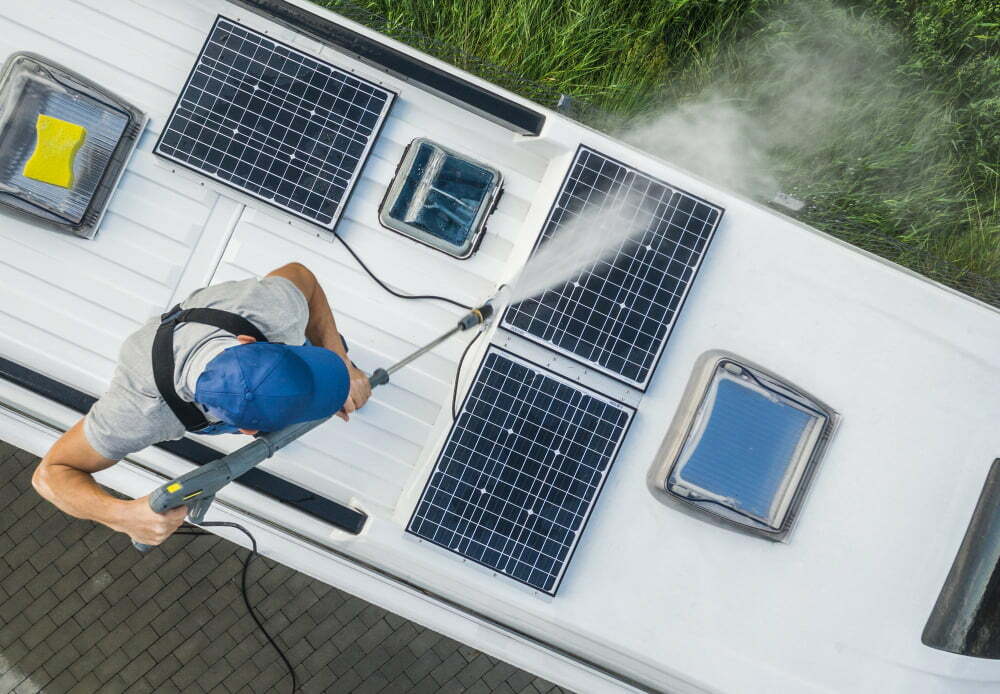
After you choose the best solar system for your RV based on its size and type, you should take care of installing and maintaining it well.
This will help your solar system work better and last longer.
Installation
Different solar systems may have different installation methods. But usually, you need to do four things:
- Mounting the solar panels on the roof or ground of your RV
- Connecting the solar panels to the charge controller with wires and cables
- Connecting the charge controller to the batteries with wires and cables
- Connecting the batteries to the inverter with wires and cables
You can follow the instructions provided by the manufacturer or seller of your solar system or hire a professional installer if you are not confident or experienced in doing it yourself.
Maintenance
Your solar system does not need much maintenance. However, a bit of attention can make a big difference in how well and how long it works.
You can do these things to keep your solar system in good shape:
- Clean your solar panels regularly with a soft cloth and water to remove dust, dirt, and bird poop. Don’t use any abrasive materials or harsh chemicals that can damage the panels. It can lower their efficiency.
- Check your wires and cables for any signs of wear and tear, corrosion, or loose connections. Replace or repair them as needed to prevent short circuits or fire hazards.
- Monitor your charge controller and battery levels to ensure they are working properly and not overcharging or undercharging. Check the voltage and current of your system with a multimeter or a battery monitor.
- Store your batteries in a cool, dry spot away from sun and heat. Avoid overloading or draining your batteries too much, as this can shorten their lifespan and capacity.
The Takeaway
So, that’s how you power your RV with solar panels. Pretty cool, right?
Solar panels are awesome for RVers who want fun and adventure without giving up on comfort and convenience. They can give you clean and quiet power that can run your stuff. They can also help you save money and time by cutting down on generators and shore power.
So, what’re you waiting for? Join the solar RV community and enhance your camping experience.
Happy RVing! 🚐☀️
Related reading:
Table of Contents
